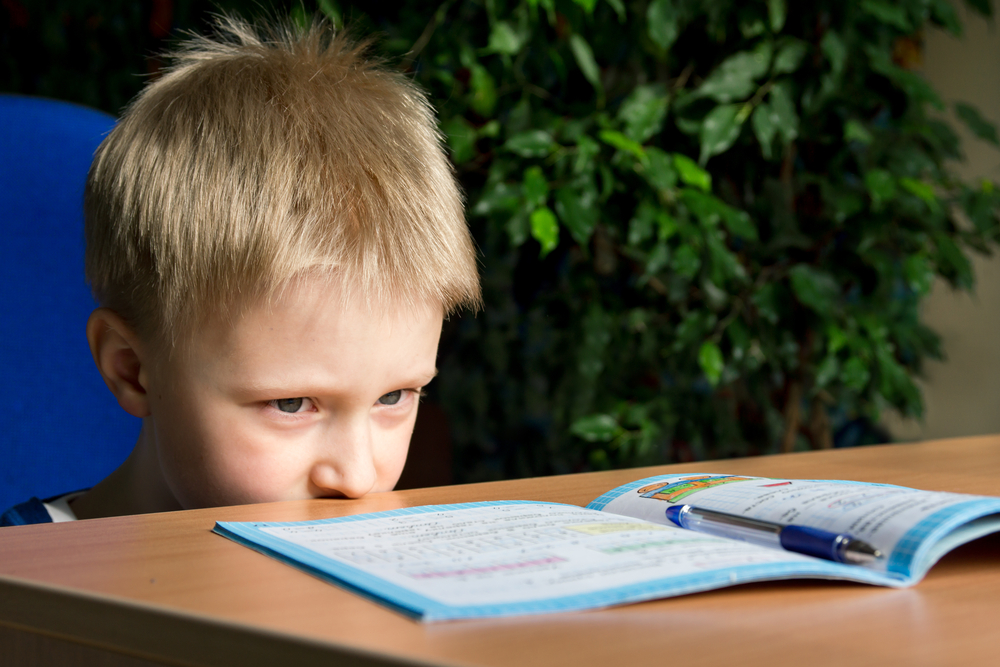Worthless blight or vital to success? Brian Christian weighs in on the debate.
Homework – is there a more divisive issue in our schools? There are those who argue that homework is only set because parents expect it, and that we should allow our children to reclaim their childhood. Conversely, others assert that we must we take note of the tuition-driven, homework-heavy climate that prevails in the PISA powerhouses of Asia and wake up to the fact of life that there is no gain without pain.
Who is right? The answer must lie somewhere between the two extremes of the outright ban and the Tiger Mom’s pile-it-on-at-all-costs approach.
Let us start with the very youngest children in our nursery/kindergarten classes. No one would dispute the idea that these little ones should have all the time in the world to play, to explore, to grow and develop in their own time – of course they should. But at this age the distinction between work and play is as blurred as it can be, and what happens at home is every bit as important as what goes on in school. How many parents’ most treasured moments have been those precious times spent with their children practising letters, colours and shapes? How long will you hold on to those memories of painting and making a mess together, of gluing and sticking, building (and demolishing!) or simply reading bedtime stories? This is learning – and it’s fun.
Focus, Time Management, and GOING the Extra Mile
The Olympic and Paralympic athletes who have recently enthralled us in Rio can point us in the direction of another important benefit from regular homework. Talent may be a gift, but it is worthless if not accompanied by self-discipline and hard work. It is no surprise that success stories in many walks of life reference determination, single-mindedness and a strong work ethic as often as they do natural talent. As long as young people can see its relevance, homework can help them to develop many of the attributes that will allow them to make the most of their abilities throughout life – including focus, time management and a willingness to go the extra mile.
Even the simplest idea of homework as practice is an important one. Ask any musician. There are so many aspects of our learning that benefit from the little-and-often approach as we aim to turn something new to us into a familiar friend. Here in Japan it is often said that learning kanji is a physical exercise as much as a mental one: the repetition of the brush strokes building a muscle-memory that lasts forever. I am sure that the same may be said of playing a musical instrument. Practising simultaneous equations may be slightly different, but there is still no doubt that familiarity with mathematical exercises encourages confidence and that confidence in turn breeds mastery.
We Love It When We’ve Made It On Our Own
And, of course, there is the small matter of independence. To return to the very young child for a moment, consider the toddler’s first unaided steps; or that first wobbling stabiliser-free solo effort on a bicycle; or even the first walk to school without Mum. None of these things happen without adult guidance, but the smile of triumphant satisfaction that always comes with independent achievement tells a powerful story: we love it when we know we’ve made it on our own. It is a primary function of schools – and parents – to provide a nurturing environment where children can grow and develop to the point where they don’t need us any more. Homework of the now-try-it-for-yourself variety is an important part of that provision.
In Tokyo we are not blessed with the long summer evenings enjoyed by children in my home country (perhaps a topic for another article!) but even so I believe that it is vital that all children are given time to play, to explore, to develop interests beyond the narrow focus of an exam-centred curriculum and simply to spend time with their families. That doesn’t mean the end of homework, but it does mean that teachers should think carefully about what they are aiming to achieve by setting it. It is our responsibility to get the balance right.
Brian Christian is the Principal of the British School in Tokyo.









